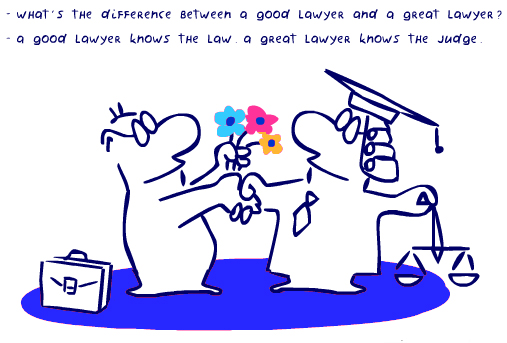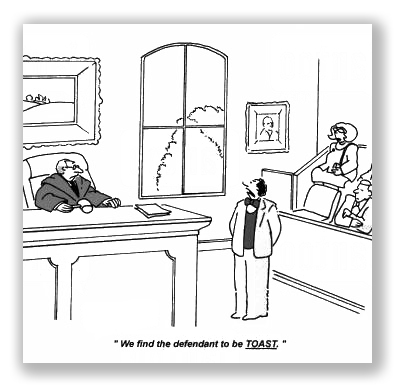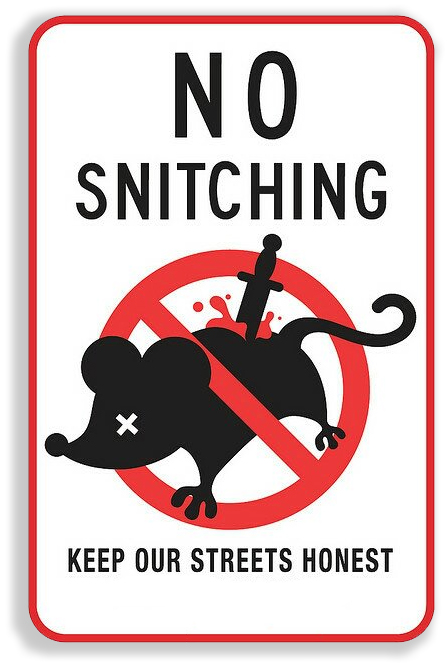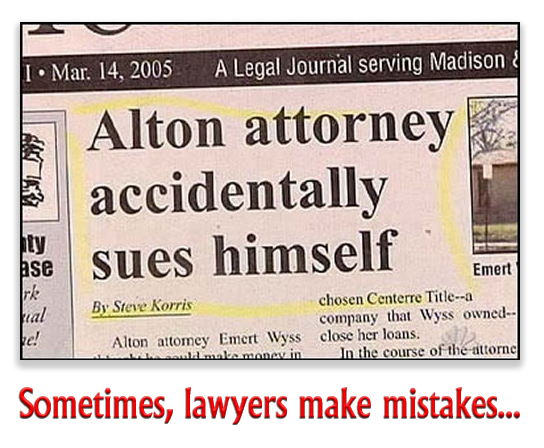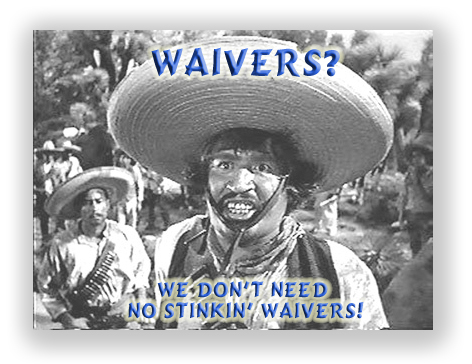We post news and comment on federal criminal justice issues, focused primarily on trial and post-conviction matters, legislative initiatives, and sentencing issues.

“DID I SAY FIVE YEARS? I MEANT FIVE DECADES…”
Four decisions of note last week:
 Oops, My Bad: Dave Mayhew was charged with white-collar fraud. The government offered him a plea deal that promised a maximum sentence of five years.
Oops, My Bad: Dave Mayhew was charged with white-collar fraud. The government offered him a plea deal that promised a maximum sentence of five years.
“C’mon, man,” his lawyer said. “That’s no deal. If we go to trial, five years is the worst we can do.” Dave, who paid big bucks for this professional advice, followed his attorney’s guidance and went to trial.
You can guess what happened. Dave lost, and he was sentenced to 27 years.
After appeals were over, Dave filed a habeas corpus motion under 28 USC § 2255, arguing that his lawyer was ineffective for giving him such bad advice. The district court denied the petition, pointing out that Dave was told at his re-arraignment that he could get up to 55 years on all of the charges and the court – no one else – would decide the sentence. So Dave knew what he was getting into, the judge claimed, and that cured any prejudice he would have suffered from his lawyer’s idiocy.
Last week, the 4th Circuit reversed. The re-arraignment came only after Dave had rejected the plea deal. The Circuit admitted that in the usual lousy-advice-on-sentence-exposure case, the law is clear that if the defendant pleads guilty after a Rule 11 change-of-plea hearing, the court’s warning that only it would determine the sentence and that the maximum the defendant faces, “taken together, may well have been enough to cure… counsel’s misadvice. But there is a fundamental problem,” the 4th held, “with applying that principle here, and it has to do with timing: The court’s admonitions in this case came only after Dave already had rejected the government’s plea offer, and there is no indication — in the record or from the government on appeal — that the offer remained open at that point.”
Bait and Switch: Rebecca Stampe made a deal on her drug case, agreeing to a Rule 11(c)(1)(C) plea locking her sentence at 168 months. An 11(c)(1)(C) plea sets a particular sentence or sentence range, with the court’s role limited to honoring the sentence deal or rejecting the guilty plea.
 Becky’s deal came with a government promise that if she testified against her co-defendant, she might get a substantial-cooperation sentence reduction under USSG § 5K1.1. But after she made the plea deal, the government dismissed the case against her co-defendant because of some unspecified misconduct by the informant (which presumedly made the informant’s testimony worthless).
Becky’s deal came with a government promise that if she testified against her co-defendant, she might get a substantial-cooperation sentence reduction under USSG § 5K1.1. But after she made the plea deal, the government dismissed the case against her co-defendant because of some unspecified misconduct by the informant (which presumedly made the informant’s testimony worthless).
Becky demanded information about the misconduct under Brady v Maryland, arguing that it was material to her guilt as well. She also moved to withdraw from her plea agreement (but not her guilty plea), figuring she’d do better with an open plea that let the court sentence her than she would with a Rule 11(c)(1)(C) plea.
Last week, the 6th Circuit shot her down. The Circuit ruled that the evidence could not possibly be material to Becky’s defense, because she had already pled guilty, so there was no defense left to make. As for the plea agreement, the Circuit said, “While we do not doubt that Stampe sincerely believed that she might avoid some prison time because of her putative cooperation in her co-defendant’s case, the plea agreement contemplated but did not require that possibility. So contrary to her assertion on appeal, it was not the ‘principal purpose’ of the agreement. The main purpose was the exchange of her plea for the government dropping the other charge against her and agreeing to a 168-month sentence.”
 End Run: John Ham filed a 28 USC § 2241 habeas petition claiming that Mathis v United States – a Supreme court decision that dictated how a sentencing court should apply the “categorical approach” in deciding whether a prior crime was a “crime of violence” under the Armed Career Criminal Act – required that he be resentenced to a lot less time.
End Run: John Ham filed a 28 USC § 2241 habeas petition claiming that Mathis v United States – a Supreme court decision that dictated how a sentencing court should apply the “categorical approach” in deciding whether a prior crime was a “crime of violence” under the Armed Career Criminal Act – required that he be resentenced to a lot less time.
John figured that the 4th Circuit’s United States v. Wheeler decision authorized the district court to address his § 2241 petition on the merits. The district court disagreed, and Jim appealed.
Wheeler adopted a four-part test for using § 2241 petitions to attack a defective sentence where a § 2255 motion would be “inadequate or ineffective.” One of those tests is that a petitioner must show a retroactive change in substantive law that happened after the direct appeal and first § 2255 motion.
John claimed that Mathis satisfies that requirement, changing “well-settled substantive law” about how a sentencing court should apply the categorical approach. Last week, the 4th Circuit disagreed.
“Mathis itself made clear that it was not changing, but rather clarifying, the law,” the 4th held. “The categorical approach has always required a look at the elements of an offense, not the facts underlying it… Indeed, Mathis merely repeated the ‘simple point’ that served as ‘a mantra’ in its ACCA decisions: ‘a sentencing judge may look only to the elements of the offense, not to the facts of the defendant’s conduct’.”
 See You Around, Chump: Finally, in the 8th Circuit, Charles Ahumada filed a § 2255 motion arguing his attorney abandoned him by failing to file a petition for rehearing on his direct appeal. Not so, the Circuit said. In order to make a 6th Amendment ineffective assistance, a defendant first has to have a constitutional right to counsel. There is no constitutional right to counsel on a discretionary appeal, and a petition for rehearing is exactly that.
See You Around, Chump: Finally, in the 8th Circuit, Charles Ahumada filed a § 2255 motion arguing his attorney abandoned him by failing to file a petition for rehearing on his direct appeal. Not so, the Circuit said. In order to make a 6th Amendment ineffective assistance, a defendant first has to have a constitutional right to counsel. There is no constitutional right to counsel on a discretionary appeal, and a petition for rehearing is exactly that.
Chuck admitted as much, but argued that the Circuit’s Criminal Justice Act plan requiring counsel to file non-frivolous appeals gave him a due process right to effective counsel. “Even assuming there was a breach of the statute, the CJA,” the 8th said, “it does not give rise to a claim for ineffective representation of counsel.”
United States v. Mayhew, Case No 19-6560, 2021 U.S.App. LEXIS 11248 (4th Cir., April 19, 2021)
United States v. Stampe, Case No 19-6293, 2021 U.S.App. LEXIS 11459 (6th Cir., April 20, 2021)
Ham v. Breckon, Case No 20-6972, 2021 U.S.App. LEXIS 11493 (4th Cir., April 20, 2021)
Ahumada v. United States, Case No 19-3632, 2021 U.S.App. LEXIS 11861 (8th Cir., April 22, 2021)
– Thomas L. Root



